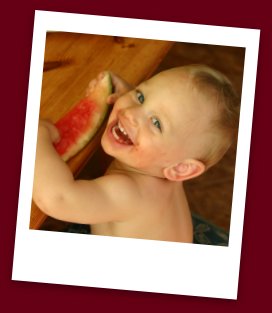|
E-coli
 E-coli food poisoning can be life-threatening to some people, but there are high risks for everyone, including healthy individuals. In fact, the
Center for Disease Control
estimates that 73,000 people get sick from E-coli poisoning in the U.S. every year. E-coli food poisoning can be life-threatening to some people, but there are high risks for everyone, including healthy individuals. In fact, the
Center for Disease Control
estimates that 73,000 people get sick from E-coli poisoning in the U.S. every year. E-coli is actually Escherichia coli, and the strain that we worry about in food safety is E-coli 0157:H7. To keep it simple, however, we’re going to call it E-coli. The first recognized outbreak of E-coli happened in 1982. Since then, we have learned how E-coli contamination and poisoning spreads from cattle to produce and other foods.
Why is E-coli so dangerous? You consume the bacteria and, if it survives your stomach acid, it slips into your intestines where it “sets up shop” for a while. As it makes itself comfortable, it creates waste (just like every other living thing) that is toxic to your system; in other words, it lives inside you and poisons you! This isn’t exactly what you expected from your hamburger.
E-coli can also get into your food through the actions of people who handle it. Should food handlers (at the farm, the plant, the restaurant, or the grocery store) have an E-coli infection, they can easily transfer the bacteria to anything they touch, especially if they don’t wash their hands properly. How do you know if you have E-coli poisoning? The main symptom is bloody diarrhea. Should this happen, GO TO THE DOCTOR IMMEDIATELY. Tests will confirm the bacteria. Over-the-counter medications are not usually strong enough to beat this! Proper cooking, however, kills E-coli, so it is very important to cook all food properly, especially food for high risk individuals (elderly people, children, people who are sick). Undercooked hamburgers can lead to a trip to the emergency room. In a restaurant, it is safest to order your meat cooked medium well to well done. Washing produce properly is also a key to keeping safe. Remember the cows in the fields. Don’t allow ready-to-eat items (foods you won’t cook or wash again) to come into contact with raw foods (the ones you’re going to cook). This will minimize the chances of contamination during preparation. In addition, pasteurized (cooked) milk and dairy products are safer than raw dairy products, especially for high risk individuals.
To check out Food-Safety-and-You.com's home page, click here.
|





 E-coli commonly comes from cattle fecal matter (cow manure). When beef is processed incorrectly, this matter from the cow’s intestines can be on the beef, including the meat you eventually put in your mouth. Couple this with the fertilization of crops with cow manure, or with cattle frolicking – and answering the call of nature – in the fields where food (such as produce) is grown, and you have the makings of a disaster.
E-coli commonly comes from cattle fecal matter (cow manure). When beef is processed incorrectly, this matter from the cow’s intestines can be on the beef, including the meat you eventually put in your mouth. Couple this with the fertilization of crops with cow manure, or with cattle frolicking – and answering the call of nature – in the fields where food (such as produce) is grown, and you have the makings of a disaster. 
